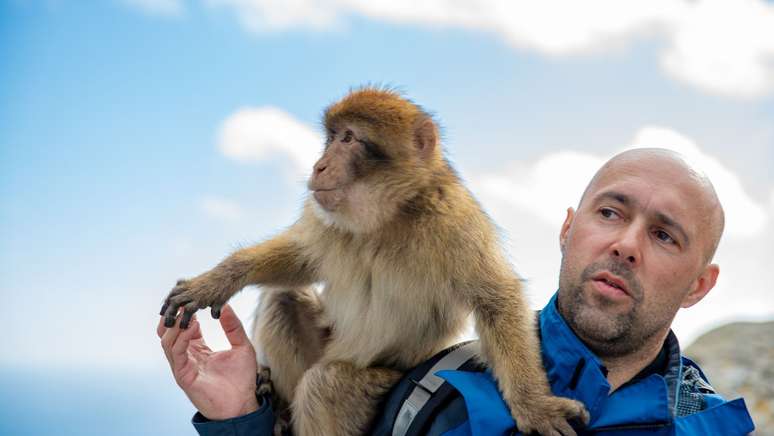Unlike most primates, humans have very little body hair. The explanation is related to our need to hunt and detect vermin
When we observe a primate, one of the first characteristics we identify is the amount of hair, rather thick and even matted, which covers the animal’s entire body. However, the human being is the only one among the existing primates, an order that includes gorillas, lemurs and monkeys in general, to have few hairs. The explanation lies in the process of human evolution.
- Apes seen with tools remarkably similar to those of human ancestors
- 10 things that make human beings special
However, a correction needs to be made. In fact, humans have as much fur as some species of monkeys. To be specific, there are at least five million hair follicles scattered throughout the skin, but most of these follicles are shallow and produce very short, fine hairs, unlike other primates.
“Technically we have hair all over our bodies, but they’re miniature follicles,” explains Tina Lasisi, a bioanthropologist at the University of Southern California in the United States, for the BBC. “They’re miniaturized to the point where, functionally, they no longer protect us,” she adds.
Now, looking at the human body, it’s easy to see where the deepest and thickest follicles are: in the head. In some ways, this cover resembles the hair so common in most primates. Other similarities are identified in the face after puberty in men, the beard. In addition, there is also thicker armpit hair and pubic hair.
Why do humans seem to have less hair than monkeys?
Science still doesn’t know why hair differentiated between humans, but there are some really interesting hypotheses. Among these, the most accepted is that the decrease in hair is related to the body’s need for cooling, known as the “savannah hypothesis”.
Here it is worth explaining that, during the Pleistocene, the Homo erectus and other hominin species practiced persistent hunting in the savannah. This means that, in order to capture the prey, the animal was chased for hours until it reached its exhaustion limit. Due to the very intense activity and the heat, they were in danger of overheating.
As hominids lost their hair, sweat glands took on the function of better cooling the body through sweat. “We can imagine, with some confidence, that this happened 1.5 to 2 million years ago,” says Lasisi. At that time, the ancestors did not yet occupy such cold regions of the globe where staying warm would have been essential.
Other hypotheses explain the few hairs in humans
Another hypothesis regarding hair loss characteristic of primates concerns the issue of parasites, known as the ectoparasite hypothesis. Among the proponents of this idea is Mark Pagal, a professor of evolutionary biology at the University of Reading in the UK.
Before continuing, it is worth making a brief consideration. Ectoparasites are arthropods that depend on a host’s skin for at least some stages of life. Included in this classification are insects (fleas, flies and even lice) and mites (ticks).
“Arguably parasites were and still are one of the greatest selective forces in our evolutionary history,” Pagal defends. “If you look around the world, ectoparasites are [até hoje] a huge problem, like flies that bite and transmit disease,” he points out. “And these flies are specialized in landing and living in fur and laying eggs,” he completes.
Source: BBC
Trending on Canaltech:
- Why are we buying fewer and fewer cell phones?
- Source | Meet the new horror series from the director of Lost
- What is a Mary Sue character?
- IPTV: Meet 6 services released in Brazil
- Galaxy S23 Plus vs S22 Plus: Have there been any camera improvements?
Source: Terra
Rose James is a Gossipify movie and series reviewer known for her in-depth analysis and unique perspective on the latest releases. With a background in film studies, she provides engaging and informative reviews, and keeps readers up to date with industry trends and emerging talents.








